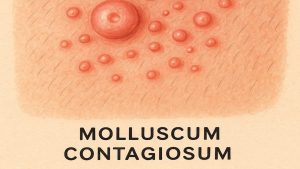Belly fat increases psoriasis risk, especially in women
Abdominal fat drives inflammation affecting skin health
Balanced diet & exercise reduce psoriasis risk factors
Dermatological care complements lifestyle interventions
Personalised skincare from Monderma supports inflamed skin
Psoriasis is a chronic inflammatory skin condition affecting millions worldwide, characterised by red, scaly patches that impact comfort and confidence. A 2025 study from King’s College London and ScienceDaily identified a key connection: central body fat, particularly around the abdomen, may increase psoriasis risk, with a stronger effect seen in women [1,3,4].
This article highlights how fat distribution, not just total body weight, can influence inflammatory skin disorders. Understanding this link helps shape new approaches combining lifestyle, inflammation management, and skincare for long-term control.

Key Findings On Psoriasis & Belly Fat
| Finding | Details |
|---|---|
| Central Fat Priority | Abdominal fat shows a stronger connection to psoriasis risk than total body fat [4]. |
| Gender Disparity | Women with higher abdominal fat face a greater psoriasis risk than men [4]. |
| Inflammation Trigger | Excess belly fat increases systemic inflammation, worsening inflammatory skin conditions [4]. |
Table 1: Central fat plays a key role in psoriasis risk, especially among women
“Where fat is stored in the body matters when it comes to psoriasis risk. Central fat, especially around the waist, seems to play a key role.”
— Ramessur et al., Journal of Investigative Dermatology (2025)
Mechanisms Linking Belly Fat To Skin Health
Abdominal or visceral fat is metabolically active and releases inflammatory cytokines that disrupt immune balance and weaken the skin barrier [2].
This process can:
- Disturb immune regulation, leading to flare-ups
- Reduce skin resilience, causing irritation and dryness
- Amplify chronic inflammation, worsening psoriasis symptoms
Researchers found that women were more affected, likely due to hormonal and metabolic factors influencing fat storage and inflammation [1].
Implications For Skincare & Health
Managing abdominal fat may help reduce psoriasis risk and support healthier skin.
| Action | Description |
|---|---|
| Balanced Diet | Focus on anti-inflammatory foods rich in omega-3s, antioxidants, and fibre to reduce visceral fat. |
| Regular Exercise | Include cardiovascular and core-strengthening activity to reduce inflammation. |
| Dermatological Care | Combine lifestyle adjustments with treatments such as topical corticosteroids or phototherapy. |
| Inflammation Monitoring | Track inflammatory markers with healthcare professionals for better management. |
Table 2: Holistic approaches reduce inflammation and improve skin resilience
Reducing central fat improves systemic inflammation, lowers psoriasis severity, and supports clearer, calmer skin [4].
Monderma’s Role In Psoriasis Skincare
Monderma provides personalised prescription skincare to support individuals with inflammatory conditions such as psoriasis.
Using ingredients like niacinamide and azelaic acid, formulations help soothe redness, strengthen the barrier, and smooth texture.
Each treatment is created by GPhC-registered professionals and designed to complement medical or lifestyle approaches.
All Monderma formulas are fragrance-free and suitable for sensitive or inflamed skin.
Who Benefits From This Research
This study provides valuable insights for:
- Women with central obesity at higher psoriasis risk
- Individuals seeking lifestyle-based prevention strategies
- Dermatologists and nutritionists designing anti-inflammatory care plans
- People with a family history of psoriasis or metabolic conditions
Recognising how belly fat drives skin inflammation empowers patients and professionals to take a more holistic approach to psoriasis management.
Future Directions For Psoriasis Management
The link between abdominal fat and psoriasis opens new opportunities for prevention and treatment.
Emerging strategies may include:
- Weight management programmes targeted for psoriasis patients
- Skincare focused on reducing inflammation in at-risk individuals
- Gender-specific interventions addressing fat distribution and hormonal factors
Integrating dermatology, nutrition, and personalised skincare could significantly improve long-term psoriasis outcomes [4].
Actionable Steps For Healthier Skin
- Measure waist circumference and discuss results with your clinician
- Maintain a balanced, anti-inflammatory diet rich in fruits, vegetables, and omega-3s
- Engage in regular physical activity to manage inflammation and weight
- Use niacinamide or ceramide-based skincare to strengthen the barrier
- Follow trusted research sources such as ScienceDaily for updates
Sharing this knowledge encourages proactive, informed approaches to managing psoriasis risk.
Conclusion
The 2025 findings from King’s College London confirm that abdominal fat and systemic inflammation significantly contribute to psoriasis risk, particularly in women. By addressing central fat through nutrition, exercise, and professional skincare, individuals can help reduce flare-ups and promote long-term skin health.
Monderma supports this holistic approach with evidence-based, prescription skincare aligned with professional care. Take control of your skin health through a personalised Monderma consultation and share this article to raise awareness about the connection between body composition and skin inflammation.
Content is for informational purposes only. Monderma treatments are prescribed following consultation. Results and timeframes can vary. Use as directed by your prescriber.
Bibliography
- ScienceDaily. Abdominal fat linked to increased psoriasis risk, particularly in women. 27 May 2025.
- Kolb H, Kempf K. Obese visceral fat tissue inflammation: from protective to detrimental. Int J Mol Sci. 2022;23(1):105.
- King’s College London. Study finds central body fat more strongly linked to psoriasis risk. 27 May 2025.
- Ramessur R, et al. Investigating the Genetic Basis of the Influence of Adiposity on Psoriasis. J Invest Dermatol. 2025.
Find your perfect skincare formula
Takes less than 2 minutes – see what your skin needs
Get Custom Formula













